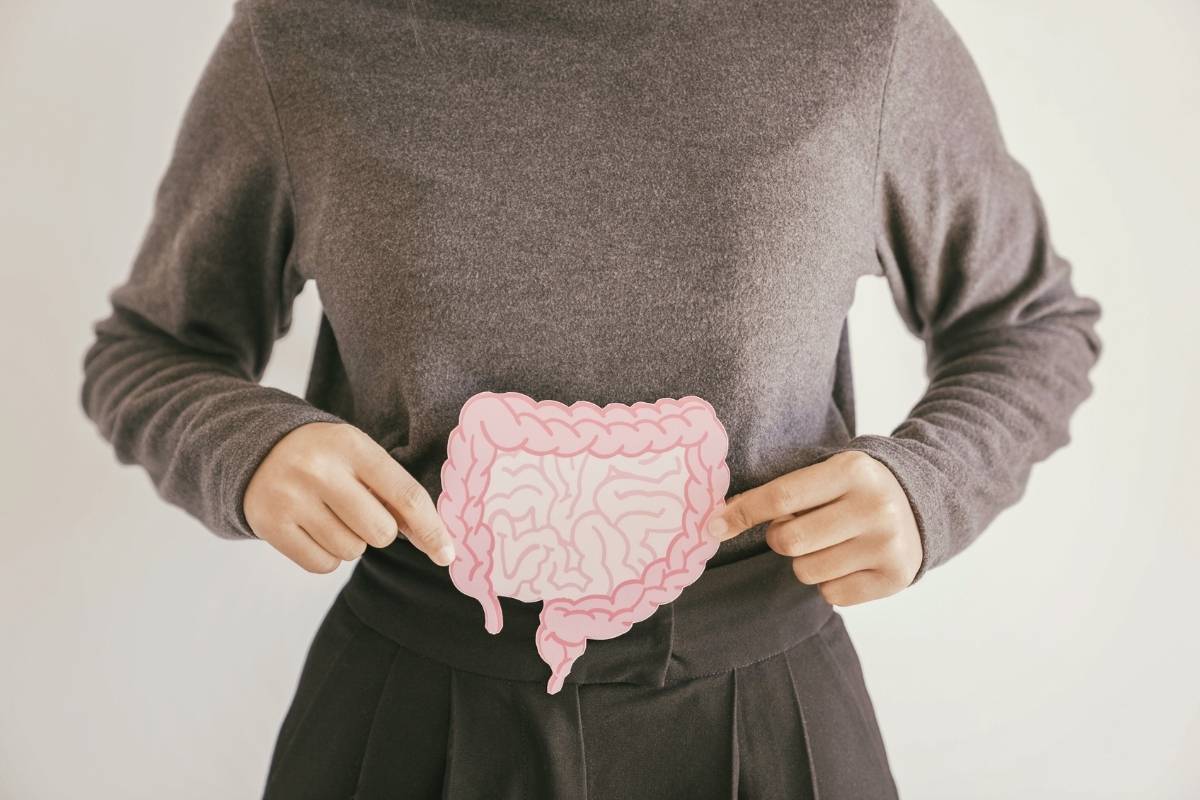Gut health refers to the balance of beneficial bacteria and microorganisms in your digestive system, which directly controls approximately 80% of your immune function and produces the majority of serotonin in your body. When your gut microbiome maintains proper bacterial balance, it strengthens immune response, supports mental clarity, regulates hormone production, and ensures efficient nutrient absorption throughout your entire system. Understanding the foundations of digestive wellness helps you make informed decisions about your health journey.
Maintaining optimal gut health requires managing stress levels, choosing nutrient-dense whole foods over processed options, supporting beneficial bacteria through probiotics, and avoiding factors that disrupt bacterial balance like excessive antibiotic use or high-sugar diets. Understanding gut health indicators, including consistent digestion, stable energy levels, clear mental focus, and strong immune function, helps you recognize when your microbiome needs attention and take corrective action before minor imbalances develop into serious health concerns.
Key Takeaways:
- Immune Function: Approximately 80% of your immune system originates in your digestive system, making gut health essential for disease resistance and overall immunity
- Mental Health Connection: Your gut produces the majority of serotonin in your body, directly affecting mood, mental clarity, and emotional stability through the gut-brain axis
- Warning Signs: Common indicators include digestive irregularities, chronic fatigue, brain fog, autoimmune conditions, sleep problems, and unexplained mood swings
- Primary Disruptors: Chronic stress damages intestinal barriers, processed foods and sugar harm beneficial bacteria, and long-term antibiotic use depletes essential nutrients
- Restoration Methods: Manage stress through mindfulness practices, consume fiber-rich whole foods, maintain 7-8 hours of quality sleep, exercise regularly, and support beneficial bacteria with probiotics
- System-Wide Impact: Poor gut health affects nutrient absorption, hormone regulation, toxin elimination, cognitive function, and energy metabolism across all body systems

Understanding Your Gut Health
Your gut microbiome serves as the cornerstone of your overall health and wellness. Gut health thrives when beneficial bacteria and potentially harmful microorganisms maintain a proper balance. Research shows that approximately 80% of immune function originates in the digestive system. The gut also produces the majority of serotonin in your body. When gut health deteriorates, immune function weakens, and hormone production becomes disrupted. This imbalance can lead to increased susceptibility to illness. Poor digestive balance may contribute to the development of autoimmune conditions over time. Maintaining optimal gut health requires consistent attention to dietary choices and lifestyle habits.
Key indicators of healthy gut function include:
- Consistent digestive patterns without discomfort
- Strong immune response to environmental challenges
- Balanced energy levels throughout the day
- Clear mental focus and emotional stability
The Critical Connection Between Digestion and Overall Wellness
Your digestive system forms the foundation for multiple bodily functions. It breaks down food into usable nutrients that fuel every cell. The gut absorbs these essential nutrients and distributes them throughout your body. When gut health becomes compromised, nutrient absorption decreases significantly. This disruption affects immune system performance and hormone regulation simultaneously. Your digestive tract also eliminates metabolic waste and environmental toxins from your body. An unhealthy gut struggles to remove these harmful substances effectively, which impacts liver and lung function. This toxic buildup can trigger chronic fatigue and persistent inflammation throughout your system. Common symptoms include digestive irregularities, brain fog, and joint discomfort. The gut-brain connection means digestive problems directly impact cognitive function. Supporting your gut with probiotic supplements helps restore beneficial bacterial balance naturally. Taking action to improve gut health creates positive ripple effects across all body systems.

Key Factors That Impact Gut Health
Several factors can negatively affect gut health and disrupt the balance of beneficial bacteria. Understanding these influences helps you take proactive steps to protect your digestive system. Supporting your digestive and gut health becomes easier when you recognize what harms it.
Chronic Stress and Its Effects
Stress directly damages the intestinal barrier, leading to increased permeability in your digestive tract. This condition allows harmful substances to enter your bloodstream more easily. The imbalance creates an environment where bad bacteria outnumber the good ones. Managing stress levels becomes essential for maintaining optimal gut health. Your body's stress response can weaken the protective functions of your digestive system and even affect cardiovascular health over time.
Dietary Choices and Nutrition Quality
Processed foods and excessive sugar consumption harm beneficial gut bacteria significantly. These dietary choices trigger inflammation that spreads throughout your entire body. Poor nutrition deprives your gut of the fiber and nutrients it needs. A diet lacking in whole foods reduces the diversity of healthy bacteria. Supporting gut health requires choosing nutrient-dense foods that nourish beneficial microorganisms. Including foods rich in natural probiotics can help restore bacterial balance, and specialized formulas like Lactobacillus gasseri provide targeted support.
Medication Use and Bacterial Balance
Long-term antibiotic and antacid use depletes essential B12 levels in your digestive system. This vitamin plays a crucial role in cell production, brain function, and energy metabolism. These medications also eliminate beneficial bacteria that support gut health and digestion. While these treatments serve important medical purposes, they require careful consideration. Always consult healthcare providers before starting or stopping any medication regimen. Understanding the impact of probiotics helps you make informed decisions about your treatment.

Common Warning Signs of Poor Gut Health
Your digestive system provides clear signals when something is wrong. Common symptoms include gas, bloating, constipation, and diarrhea. However, digestive disorders often manifest in unexpected ways throughout your body.
Autoimmune conditions may indicate underlying gut issues. These include Hashimoto's disease, rheumatoid arthritis, Type 1 diabetes, and multiple sclerosis. Your immune system attacks healthy tissues when gut health deteriorates. Mental health symptoms also connect directly to your digestive system's condition. Brain fog, headaches, and poor concentration frequently stem from gut imbalances. Memory problems and chronic fatigue signal your microbiome needs attention, and may benefit from comprehensive wellness solutions.
Additional indicators include:
- Persistent trouble sleeping through the night
- Chronic pain without clear causes
- Intense food cravings you cannot control
- Unexplained mood swings and irritability
- Low energy levels despite adequate rest
These symptoms represent critical warnings that probiotics and gut health require immediate attention. Supporting eye and vision care also connects to overall nutritional wellness and gut function.

Practical Steps to Restore Your Gut Health
Many people successfully restore their gut health through lifestyle modifications. Managing daily stress levels creates a foundation for digestive wellness. Regular mindfulness practice supports your body's natural healing processes and can complement anti-aging strategies through improved cellular health.
Nutritious eating habits directly improve your microbiome composition. Aim for seven to eight hours of quality sleep each night. Physical exercise strengthens both your immune system and digestive function. These foundational habits work together to support probiotics and beneficial bacteria, and proper supplementation with 30 billion CFU probiotics can accelerate results.
Key actions include:
- Reduce stress through meditation or deep breathing exercises
- Choose whole foods rich in fiber and nutrients from trusted nutritional sources
- Maintain consistent sleep schedules every day
- Incorporate moderate physical activity into your routine
- Stay hydrated with adequate water intake
Some individuals may require additional support beyond basic lifestyle changes, particularly those managing weight management goals or prenatal and women's health needs. Starting with these fundamental steps remains essential for everyone. Your gut health responds positively when you prioritize these consistent daily habits.
Conclusion
Your gut health serves as the foundation for your overall wellness, controlling immune function, mental clarity, and energy levels throughout your entire body. When beneficial bacteria maintain proper balance, your digestive system supports optimal nutrient absorption, hormone production, and toxin elimination across all body systems. Recognizing warning signs like digestive irregularities, chronic fatigue, and brain fog allows you to address imbalances before they develop into serious health concerns.
Restoring gut health requires consistent commitment to stress management, nutrient-dense whole foods, quality sleep, and regular physical activity. Supporting your microbiome through probiotics helps rebuild beneficial bacterial populations naturally. While lifestyle modifications provide powerful results for most individuals, some situations may require professional guidance to achieve optimal digestive wellness. For questions or personalized recommendations, contact our team to learn more about our commitment to quality and who we are.
Taking action today to improve your gut health creates positive ripple effects that enhance immune function, mental stability, and overall vitality for years to come, supported by evidence-based guidance from leading health organizations worldwide.
FAQs
How long does it take to improve gut health?
Most people notice initial improvements in digestive comfort and energy levels within 2-4 weeks of implementing consistent lifestyle changes. However, fully restoring your gut microbiome typically requires 3-6 months of sustained effort. The timeline varies based on your starting point and how consistently you maintain healthy habits. Significant improvements in immune function and mental clarity often appear within the first month when you prioritize stress management, whole foods, probiotics, and quality sleep.
What foods should I eat to support gut health?
Focus on fiber-rich whole foods, including vegetables, fruits, legumes, and whole grains that feed beneficial bacteria. Fermented foods like yogurt, kefir, sauerkraut, kimchi, and kombucha naturally contain probiotics. Include prebiotic foods such as garlic, onions, bananas, and oats that nourish existing good bacteria. Avoid processed foods, excessive sugar, and artificial sweeteners that harm your microbiome. Consuming diverse plant-based foods increases bacterial diversity and strengthens overall gut health.
Can stress really affect my digestive system?
Yes, chronic stress directly damages your intestinal barrier and reduces beneficial bacteria populations. Stress hormones increase intestinal permeability, allowing harmful substances to enter your bloodstream and trigger inflammation. This weakens immune function and disrupts digestive processes, causing bloating, cramping, and irregular bowel movements. Managing stress through meditation, deep breathing, or regular exercise significantly improves gut health and digestive comfort.
Do I need to take probiotics, or can I get enough from food?
Many people maintain gut health through probiotic-rich foods like yogurt, kefir, and fermented vegetables. However, probiotic supplements provide higher concentrations of beneficial bacteria, which may be necessary after antibiotic use, during high-stress periods, or when addressing significant imbalances. Quality supplements deliver specific bacterial strains in therapeutic doses that food sources cannot match. Combining probiotic-rich foods with targeted supplements offers the most comprehensive approach.
What are the first signs that my gut health is improving?
The earliest improvements include more regular and comfortable bowel movements within 1-2 weeks, along with reduced bloating and gas. Increased energy levels and improved mental clarity often appear within 2-3 weeks as nutrient absorption improves. Better sleep quality, more stable moods, and stronger immune response develop within the first month. Consistent progress in these areas confirms your gut microbiome is responding positively to your lifestyle changes.




